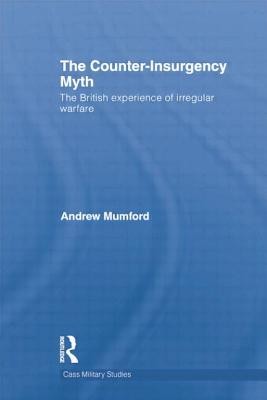
- We will send in 10–14 business days.
- Author: Andrew Mumford
- Publisher: Routledge
- Year: 2014
- Pages: 216
- ISBN-10: 1138840912
- ISBN-13: 9781138840911
- Format: 15.2 x 22.9 x 1.5 cm, minkšti viršeliai
- Language: English
- SAVE -10% with code: EXTRA
Reviews
Description
This book examines the complex practice of counter-insurgency warfare through the prism of British military experiences in the post-war era and endeavours to unpack their performance.
During the twentieth century counter-insurgency assumed the status of one of the British military's fortes. A wealth of asymmetric warfare experience was accumulated after the Second World War as the small wars of decolonisation offered the army of a fading imperial power many opportunities to deploy against an irregular enemy. However, this quantity of experience does not translate into quality. This book argues that the British, far from being exemplars of counter-insurgency, have in fact consistently proved to be slow learners in counter-insurgency warfare.
This book presents an analysis of the most significant British counter-insurgency campaigns of the past 60 years: Malaya (1948-60), Kenya (1952-60), South Arabia (1962-67), the first decade of the Northern Irish 'Troubles' (1969-79), and the recent British counter-insurgency campaign in southern Iraq (2003-09). Colonial history is used to contextualise the contemporary performance in Iraq and undermine the commonly held confidence in British counter-insurgency. Blending historical research with critical analysis, this book seeks to establish a new paradigm through which to interpret and analyse the British approach to counter-insurgency, as well as considering the mythology of inherent British competence in the realm of irregular warfare.
It will be of interest to students of counter-insurgency, military history, strategic studies, security studies, and IR in general.
EXTRA 10 % discount with code: EXTRA
The promotion ends in 22d.06:25:32
The discount code is valid when purchasing from 10 €. Discounts do not stack.
- Author: Andrew Mumford
- Publisher: Routledge
- Year: 2014
- Pages: 216
- ISBN-10: 1138840912
- ISBN-13: 9781138840911
- Format: 15.2 x 22.9 x 1.5 cm, minkšti viršeliai
- Language: English English
This book examines the complex practice of counter-insurgency warfare through the prism of British military experiences in the post-war era and endeavours to unpack their performance.
During the twentieth century counter-insurgency assumed the status of one of the British military's fortes. A wealth of asymmetric warfare experience was accumulated after the Second World War as the small wars of decolonisation offered the army of a fading imperial power many opportunities to deploy against an irregular enemy. However, this quantity of experience does not translate into quality. This book argues that the British, far from being exemplars of counter-insurgency, have in fact consistently proved to be slow learners in counter-insurgency warfare.
This book presents an analysis of the most significant British counter-insurgency campaigns of the past 60 years: Malaya (1948-60), Kenya (1952-60), South Arabia (1962-67), the first decade of the Northern Irish 'Troubles' (1969-79), and the recent British counter-insurgency campaign in southern Iraq (2003-09). Colonial history is used to contextualise the contemporary performance in Iraq and undermine the commonly held confidence in British counter-insurgency. Blending historical research with critical analysis, this book seeks to establish a new paradigm through which to interpret and analyse the British approach to counter-insurgency, as well as considering the mythology of inherent British competence in the realm of irregular warfare.
It will be of interest to students of counter-insurgency, military history, strategic studies, security studies, and IR in general.


Reviews